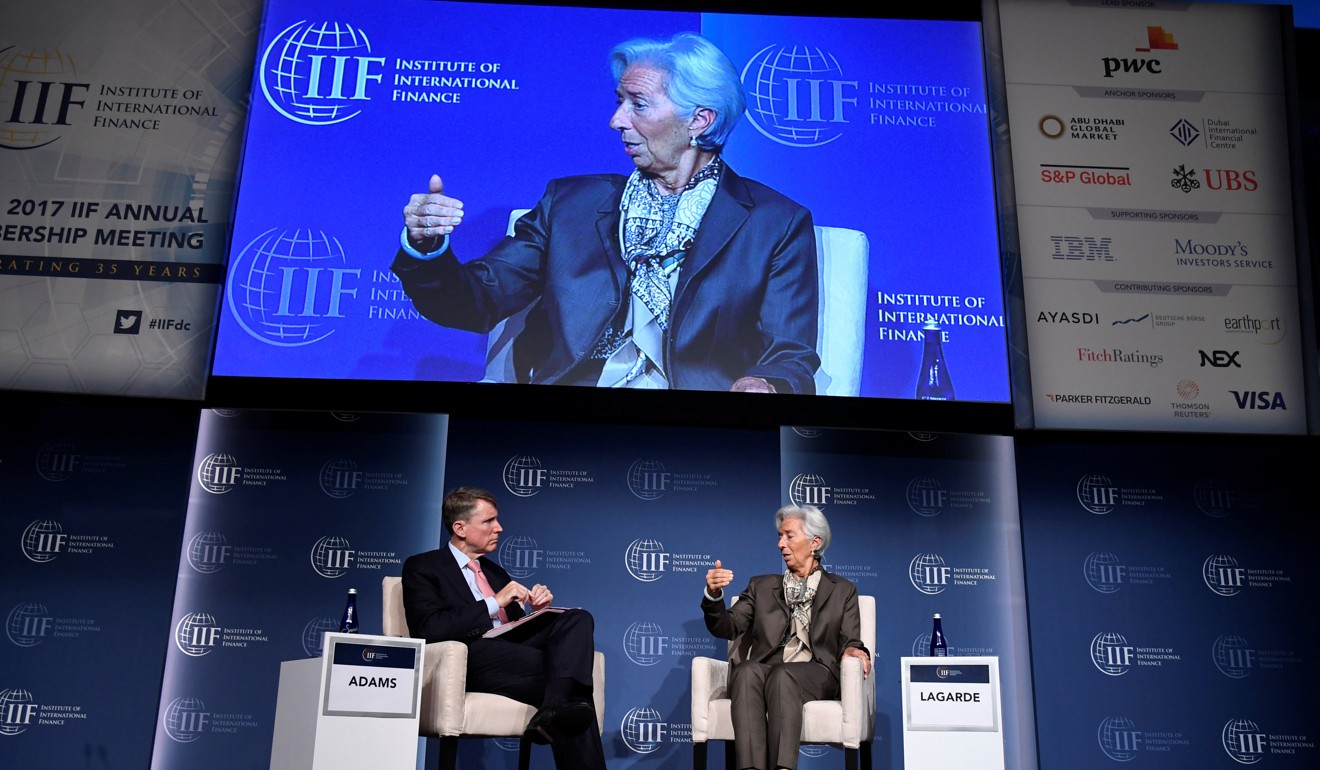
IMF calls on global leaders not to turn their backs on trade despite populist backlash
IMF Managing Director Christine Lagarde urged global leaders on Wednesday not to reject international trade as policy shifts by Washington and London force resets on major global commercial treaties.
Lagarde admitted that the rapid lowering of trade barriers in recent decades had caused significant dislocation, including job losses, downward pressure on wages and higher inequality in both developing and advanced economies.
“The best policy response to all these challenges is not to turn our back on trade,” Lagarde told a conference on globalisation in Washington. “Instead, we need to redouble our efforts to create a more inclusive global trading system that works for all.”
Speaking ahead of the annual International Monetary Fund and World Bank meetings on the global economy, Lagarde did not single out the views of any specific countries or leaders on trade.
But her remarks followed a year in which Britain acted to withdraw from the European Union and US President Donald Trump killed the nascent Trans Pacific Partnership treaty and ended talks on the ambitious Transatlantic Trade and Investment Partnership that were initiated by his predecessor Barack Obama.
Trump has also forced a renegotiation of the North American Free Trade Association with partners Mexico and Canada. A new round of talks on redoing Nafta began on Wednesday, with Washington pressing its partners for more benefits for US workers from the treaty.

Lagarde said that with stronger global economic growth, governments now have an opportunity to secure the benefits of international trade.
Globalisation “has fostered a sharp decline in global income inequality – that is inequality between countries,” she said.
“Living standards have been boosted in all countries, including in advanced economies, where consumers and businesses are benefiting from lower prices and a greater variety of goods.”
She conceded that there are “negative side-effects” with globalisation, as local industries get hit from competition, with some social upheaval the result.
“Despite these challenges, citizens in emerging economies generally take a more favourable view of trade and its labour market impact,” Lagarde said. “Why? Because their incomes have been growing, even in the bottom deciles of the income distribution.”

.png?itok=arIb17P0)